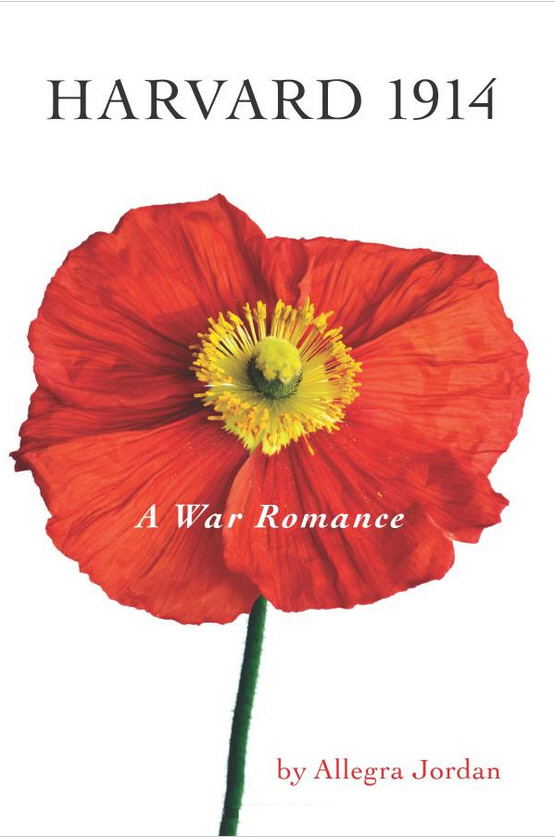Harvard 1914. A War Romance
By Allegra JordanPublished by Chapel Hill, NC, Gold Gable Press, 2012
Harvard 1914 is much more than a romance between a young couple. It is about Harvard University and the Western Front, the cruelty of the Great War and its effect on soldiers on both sides, and, above all, the possibility of redemption. Allegra Jordan, herself a graduate of Harvard University, bases her fictional story on fact: the memorial plaque on which the story hinges can be found on the north wall of the university church. Both in the fictional story and in reality, the plaque unites the two sides of a horrific war, reconciling in stone those who could not be reconciled in reality. The heated controversy caused by the erection of the plaque in 1932 is illustrated in the fictional lives of the two protagonists, American-born Helen Brooks and Wilhelm von Lützow Brandl, known as Wils.
Helen and Wils meet at the beginning of the novel. Both study English for Professor Copeland; Wils is recognized as a talented poet and is Copeland's favorite. Shortly before Wils leaves Harvard to serve in the German army, he becomes engaged to Helen. Only a few months later, he is fatally injured. Eighteen years later, Helen decides to fight for the honor of the four German Harvard students who died in the service of the Kaiser, insisting that a plaque be erected in memory of their sacrifices. In the novel, as in reality, while the President of the University finally concedes to Helen's demands and to public pressure, he ensures that the plaque is not placed near the one commemorating the deaths of American soldiers, and its inscription is unreadable for any who do not understand Latin.
Wils's final poem before leaving for the front expresses the hope for reconciliation between the two sides that is the foundation of the novel:
Harvard 1914 is an excellent example of the contribution that novels can make to our understanding of what the war meant to the individual. It shows that there was no real difference between the two sides - and that when the war is over, reconciliation is not only possible but desirable.
Jane Mattisson Ekstam
 |
Wils's final poem before leaving for the front expresses the hope for reconciliation between the two sides that is the foundation of the novel:
| We die for Thoughts we don't think, and for men we don't love. Luther's God, build your fortress round our hearts Until our souls are welcomed back to earth. Grant the gift of Spring to a broken race. |
Harvard 1914 is an excellent example of the contribution that novels can make to our understanding of what the war meant to the individual. It shows that there was no real difference between the two sides - and that when the war is over, reconciliation is not only possible but desirable.

Many thanks for your kind review. I very much appreciate you understanding the spirit and intent of the work. With kind regards, Allegra Jordan
ReplyDeleteIsn't the title THE END OF INNOCENCE?
ReplyDelete